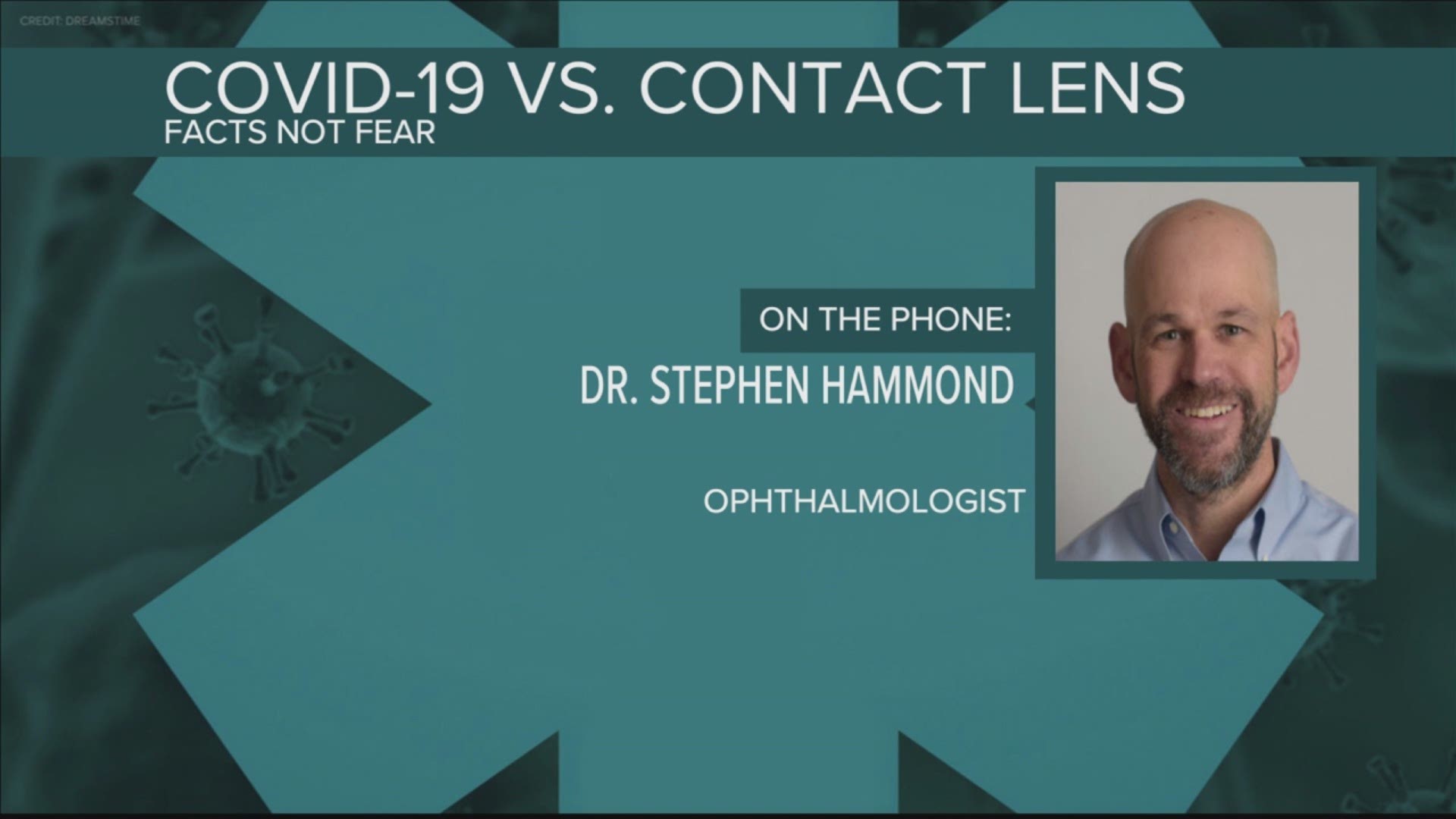MEMPHIS, Tenn. — There has been some misinformation out there that if you wear contact lenses, you could get COVID-19. While contact lens wear remains a safe and effective form of vision correction for millions of people worldwide, ophthalmologists are advising people who wear contact lenses to be careful. Local 24 News Weeknight Anchor Katina Rankin tells us why.
"Due to COVID-19, the American Academy of Ophthalmology has recently recommended that patients not wear contact lenses,” said Ophthalmologist Dr. Stephen Hammond.
We spoke to Dr. Hammond by telephone about protecting your eyes during the coronavirus pandemic.
"Contact lens wearers are more likely to touch their face and eyes,” said Hammond.
Plus, Hammond says the virus can be spread through droplets.
"Yes, COVID-19 can be spread through tears,” said Optometrist Dr. Carolyn Morton.
But optometrist Dr. Carolyn Morton says don’t worry. You can’t get COVID-19 ‘simply’ from wearing contacts.
"The AOA advises that contact lenses themselves will not give you COVID-19, but viruses can be transmitted through body fluids. So it may be best to wear glasses at this time instead of contact lenses,” said Morton.
If you still prefer to wear your contacts, Morton says the American Optometric Association, or AOA, says people who wear contacts should take extra precautions.
"To protect yourself, you should disinfect and clean your contact lenses. Wash your hands before you touch your eyes or before you insert or remove your contact lenses. If you are sick, wear glasses instead of contact lenses,” said Morton.
And both the World Health Organization and Centers for Disease Control and Prevention also remind you to avoid touching your eyes with unwashed hands. But remember...
"Not wearing contacts prevents patients from introducing the virus into their eyes while placing, moving, or adjusting their contact lenses,” said Hammond.
-----------------------------------------
Coronavirus in Context:
The symptoms of coronavirus are similar to the flu or a bad cold. Symptoms include a fever, cough and shortness of breath, according to the Centers for Disease Control.
Most healthy people will have mild symptoms. A study of more than 72,000 patients by the Centers for Disease Control in China showed 80-percent of the cases there were mild.
But infections can cause pneumonia, severe acute respiratory syndrome, kidney failure and even death, according to the World Health Organization. Older people with underlying health conditions are most at risk.
The CDC believes symptoms may appear anywhere from two to 14 days after being exposed.
Lower your risk
- Wash your hands often with soap and water for at least 20 seconds. If soap and water are not available, use an alcohol-based hand sanitizer.
- Avoid touching your eyes, nose, and mouth with unwashed hands.
- Avoid close contact with people who are sick.
- Clean and disinfect frequently touched objects and surfaces.
- If you are 60 or over and have an underlying health condition such as cardiovascular disease, diabetes or respiratory illnesses like asthma or COPD, the World Health Organization advises you to try to avoid crowds or places where you might interact with people who are sick.

